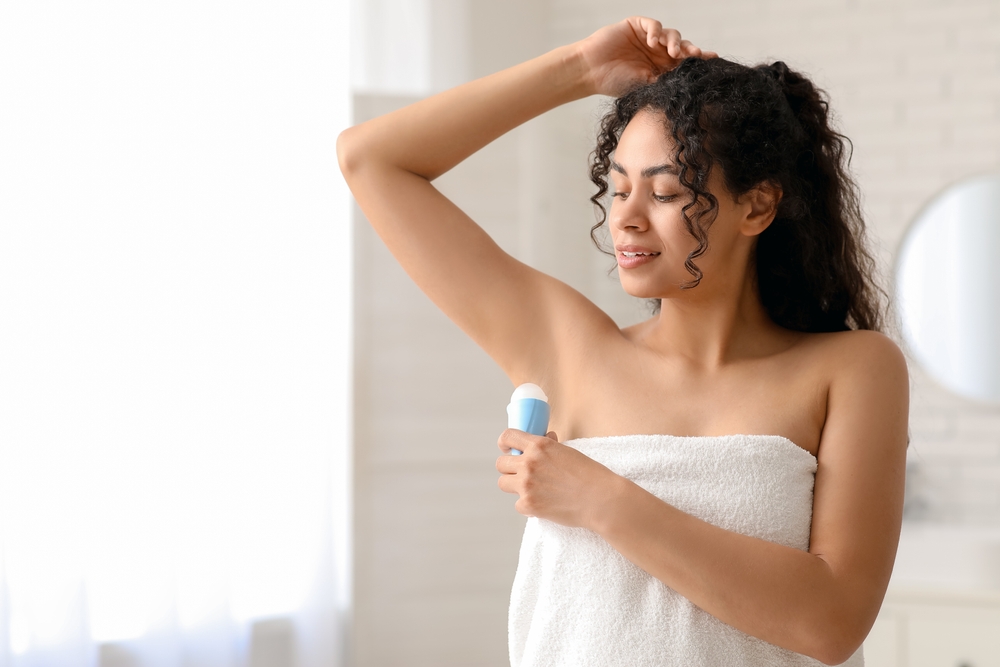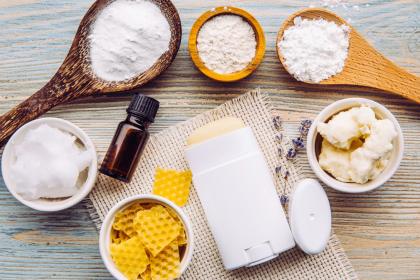Deodorants are a staple in our daily hygiene routines, but not all of them are created equal. Many people have experienced the discomfort and pain of boils under their arms after using certain deodorants. The primary reason behind this unpleasant reaction often lies in the ingredients used in these products. Common culprits include aluminum compounds, fragrances, and preservatives.
Aluminum compounds: Aluminum compounds are commonly used in antiperspirants to block sweat glands and reduce perspiration. However, these compounds can also clog the pores, leading to bacterial buildup and inflammation. This can cause painful boils to form as the body tries to fight off the infection.
Fragrances and preservatives: Fragrances add a pleasant smell to deodorants, but they can also be irritating to sensitive skin. Similarly, preservatives such as parabens are used to extend the shelf life of deodorants, but they can cause allergic reactions in some people. Both fragrances and preservatives can lead to skin irritation, making it easier for bacteria to penetrate the skin and cause boils.
Understanding the ingredients in your deodorant is the first step towards preventing boils under your arms. Switching to products that are free from these irritants can significantly reduce the risk of developing painful skin conditions.
The role of personal hygiene and skin sensitivity
While ingredients play a significant role, personal hygiene and skin sensitivity are also crucial factors in the development of boils. Maintaining proper hygiene can help prevent the buildup of bacteria and sweat, which are primary contributors to skin infections. However, even with excellent hygiene practices, individuals with sensitive skin may still experience issues.
Personal hygiene: Regularly washing the underarm area with mild soap and water can help remove sweat and bacteria. It’s also important to thoroughly dry the area after washing to prevent moisture buildup, which can create a breeding ground for bacteria. Wearing breathable fabrics can also help reduce sweat and allow the skin to stay dry.
Skin sensitivity: Some individuals have more sensitive skin than others, making them more prone to irritation and boils. Factors such as genetics, underlying health conditions, and even diet can influence skin sensitivity. For these individuals, it’s essential to choose deodorants specifically designed for sensitive skin. These products typically avoid harsh chemicals and fragrances, reducing the likelihood of irritation.
By paying attention to personal hygiene and understanding individual skin sensitivities, people can take proactive steps to prevent the occurrence of boils under their arms.
Finding safe and effective alternatives
Given the potential risks associated with some deodorants, finding safe and effective alternatives is essential for those prone to skin irritation. Fortunately, there are several options available that can help maintain freshness without compromising skin health.
Natural deodorants: Natural deodorants have gained popularity as they often avoid synthetic chemicals and rely on natural ingredients such as baking soda, coconut oil, and essential oils. These products can effectively neutralize odor without blocking sweat glands, thus reducing the risk of boils.
Hypoallergenic deodorants: Hypoallergenic deodorants are specifically formulated to minimize the risk of allergic reactions. These products typically exclude common irritants like fragrances, dyes, and preservatives, making them a safer choice for individuals with sensitive skin.
DIY deodorant solutions: For those who prefer a more hands-on approach, creating a homemade deodorant can be an effective solution. Simple ingredients like coconut oil, baking soda, and arrowroot powder can be mixed to create a natural deodorant paste. Adding a few drops of essential oils can provide a pleasant scent without the risk of irritation.
Exploring these alternatives can help individuals find a deodorant that works for them without causing painful skin issues. It’s also important to test new products on a small area of skin before full application to ensure there are no adverse reactions.
Conclusion: Prioritizing skin health
Dealing with boils under your arms can be painful and frustrating, but understanding the underlying causes can help prevent them. By paying attention to the ingredients in deodorants, maintaining proper hygiene, and choosing products that suit your skin type, you can significantly reduce the risk of developing boils.
Switching to natural or hypoallergenic deodorants can provide a safer alternative for those with sensitive skin. Additionally, exploring DIY deodorant options allows for control over the ingredients used, ensuring they are gentle on the skin.
Ultimately, prioritizing skin health and being mindful of the products we use can lead to more comfortable and boil-free underarms. Taking these steps not only helps prevent boils but also promotes overall skin health, making it easier to stay fresh and confident throughout the day.















